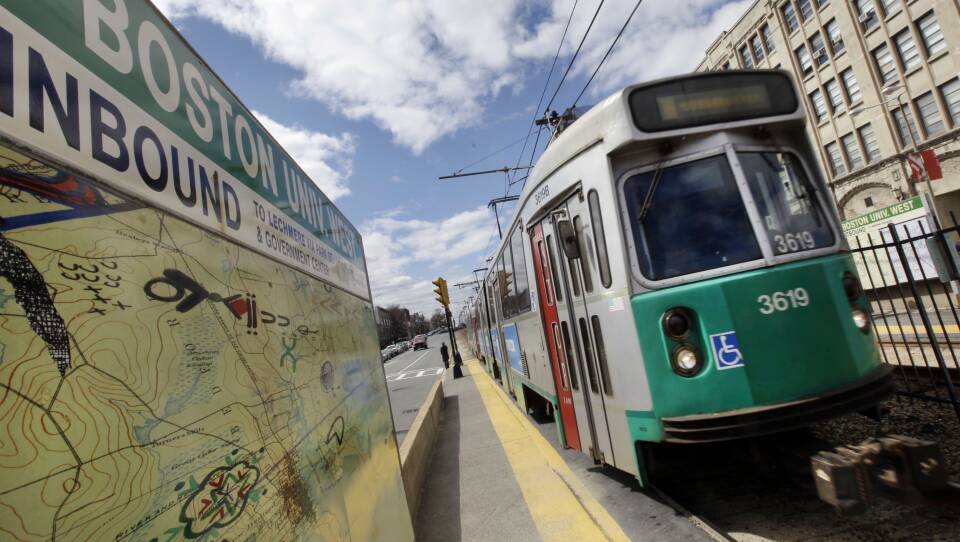Updated at 12:12 p.m. Nov. 18
It’s taken four years of work and several delays, but the final part of the Green Line Extension will open for service on Monday, Dec. 12 — an announcement that came Thursday during a wide-ranging meeting with the MBTA’s board of directors.
MBTA General Manager Stephen Poftak acknowledged the original start date was late November.
“We had some additional work we wanted to get done,” Poftak said. “So we're taking a few extra days.”
Another five stops will connect Lechmere up to Tufts University in Medford, all opening on that December day. The new Green Line Extension service to the Union Square Somerville branch opened in March.

The board made other key decisions at Thursday’s meeting, approving both the Better Bus Network Redesign and new fare evasion regulations. Members also fretted that MBTA ridership is expected to stay below pre-pandemic levels for at least five more years — a blow to the agency’s finances, the region’s economic recovery and hopes to cut emissions by reducing commutes by car.
Redesigning the bus network has been a multi-year feat for the agency. Since the 1960s, bus routes have stayed the same, despite major shifts in travel patterns and development in the Greater Boston area. An initial plan, released in May 2022, was overhauled after receiving more than 20,000 comments from elected officials and riders. The proposal approved Thursday will change, add or remove more than 100 routes.
The board’s approval came with a caveat from Board Member and Quincy Mayor Tom Koch, who said some of his fellow mayors have expressed concerns about the new plan. Koch says he hopes the T will be open to changing the bus plan as it is rolled out over the next five years.
”There's no way to please everybody,” he said. “But as we continue to move forward with it, I ask that the MBTA administration will be open to suggestions from some of these communities and try to resolve some of these disparities in their view.”
Newly approved fare evasion regulations will allow transit police to again begin issuing citations to those failing to pay fares. It’s something the MBTA hasn’t been able to enforce since last year due to a dispute over fine levels. The new regulations reduce the original fines by 50%, bringing down a first offense down to $50 rather than $100.
T officials said they would carefully monitor the impact of enforcement amid concerns that enforcement would unfairly target low-income riders.
MBTA board members also worried about the agency’s financial future. For the next two years, federal and state aid should keep the MBTA operating, but the long-term outlook is more grim. Starting in July 2025, the T’s operating budget is projected to fall into a deep hole, as one-time windfalls run out and expenses continue to mount.
Key lawmakers say the T needs a new revenue stream, and that the issue could be taken up next year. With high costs for daily operations, MBTA Board Chair Betsy Taylor said it limits the opportunity to offer new services with major capital projects.
“I am delighted that the sales tax revenue is as robust as it is and that the federal dollars are available,” Taylor said. “Having said that, the fact that we are draining all our reserves and the available federal dollars for operating expenses means that they are not available for capital.”
The MBTA is not expecting ridership to return to pre-COVID levels within the next five years, even with the addition of new services like the Green Line Extension and South Coast Rail. The T’s most optimistic ridership scenario puts fare revenue at 93% of pre-COVID levels by the June 2028. But under the scenario the T believes is most likely, fare revenue will reach just 78% of pre-COVID levels by that time.
The latest projections suggest ridership growth is slowing. The T released a similar analysis one year ago, projecting those same returns to fare revenue would — but by June 2027, one year earlier.
This story was updated to remove a copyeditor's note that had been left in the story.








